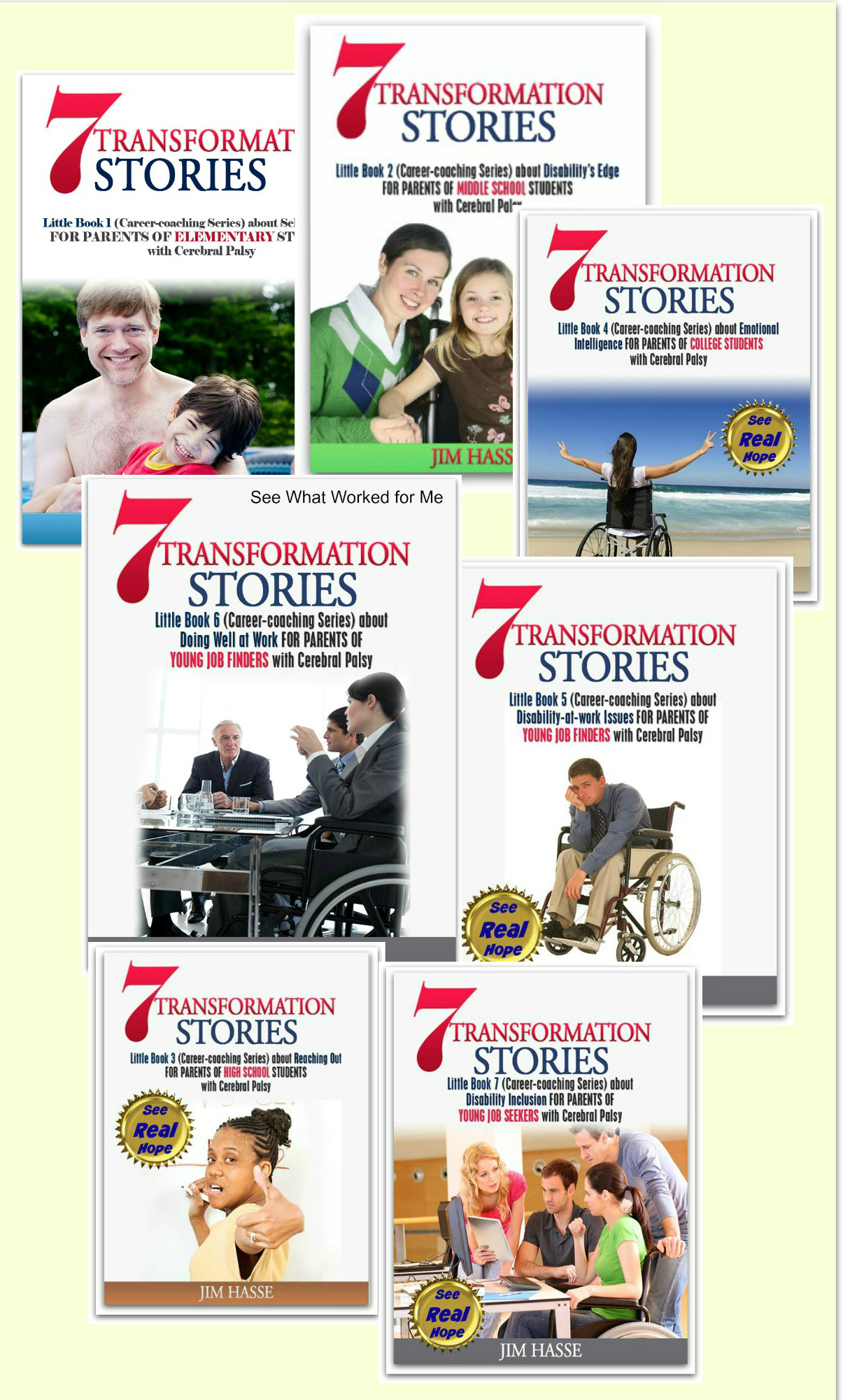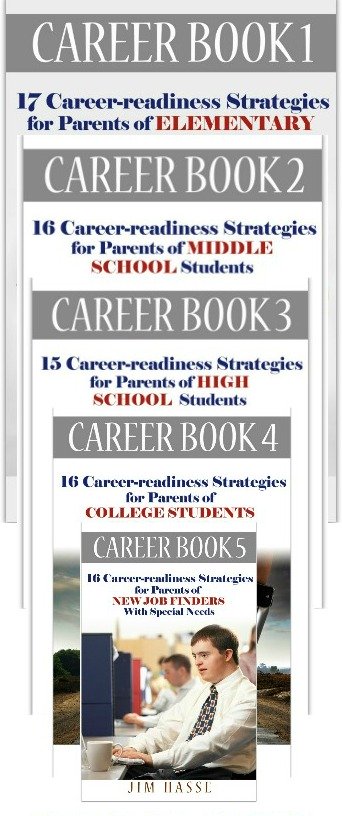Career Information for Kids: Cerebral Palsy Career Builder in Elementary School
By Jim Hasse, ABC, GCDF, Disability Employment Expert
_________________________________________________________
Career information for kids is a cerebral palsy (CP) career builder I wish I had when I was in elementary school. Be sure to add it to your tool chest as a career-coaching parent.
Somehow my mom instilled in me the desire to work and develop a career. One night, after our evening meal, she gave me a few coins to put in my piggy bank, after I successfully washed the evening meal’s dishes.
I also learned to vacuum the living room and sweep the kitchen floor (probably because the vacuum and broom both gave me stability in place of crutches). I also would crawl along the garden rows and pull weeds and eventually took it upon myself to maintain the shrubbery and flowers which circled our old farm house.
I eventually operated our power lawn mower and drove tractor for dad as we baled hay for our herd of 50 registered Brown Swiss cows.
That was my life on a Wisconsin farm, where the economic reality was that every kid needed to work to support the family enterprise. Career information for kids was based on apprenticeship, even though it was sometimes crude and informal in terms of training.
But 60 miles away, at an orthopedic school in Madison, I never received career information for kids, perhaps because my classes were so diverse in terms of disability. There were kids with developmental disabilities as well as muscular dystrophy, polio, and learning disabilities. Career information for kids was perhaps difficult to cover for such a diverse group.
On the other hand, it was the 1950s. More than likely, career information for kids didn’t exist.

Career development is a lifelong process
Today we know that the lifelong process of career development begins as early as four years old and extends into what we once called “retirement.” In these early years, you, as a career-coaching parent, can begin to instill hope and confidence about the future by helping your youngster discover him or herself as well as the world of work.
The awareness stage involves discovery, imagination, and curiosity. Young children are fascinated by everyday things. They want to know more about things they observe in their families, their communities, and the world.
Many of their interests are displayed in career fantasies. They enjoy imitating the adult world. You play a vital role in encouraging your children through play and dress up, reading and talking, exploring and learning.
At seven, my career fantasy was to become a carpenter. I wanted to build things – to create. Today, at 74, I’m still a builder, despite my CP. I’m had a career of more than 50 years of building. I just don't use brick and mortar and a hammer. I use a keyboard.
In grade school, career-related learning expands awareness
of oneself and the world of work. It helps connect school to real life. You
might remember a visit to the neighborhood fire station from your own
elementary years.
What
has worked for you
in stimulating your child’s curiosity
about the world of work?
Join PACER’s Facebook
discussion.
Most elementary teachers now imbed career awareness into
their curriculum on a regular basis. Their academic goals often include
learning about the community and roles in society. Real life examples, through
classroom trips, presentations, or projects, are the learning foundation for
today’s career information for kids.
You can support career-related learning at your youngster’s elementary school by:
- Finding out about the
career-related learning goals and program at the school.
- Talking about the career
events and activities with your youngster.
- Helping your youngster reflect
on what he or she learned from these events and activities (“What did you
find interesting?” “What did not interest you?” “What does that tell you
about yourself?”).
- Participating in career
events and activities as a volunteer.
- Talking to your employer and other acquaintances when the school needs the larger community to participate in an event.
Career information for kids in the early years is building the foundation for the upper grades. These activities are not meant in any way to track your youngster onto a particular path. Instead, they are important in setting the stage by stimulating curiosity, making connections, and building a sense of community.
Understanding work:
key career
information for kids
It is never too early for your youngster to begin observing the adult world. The adult world involves a number of interrelated life roles. As an adult, each of us acts as an individual, a learner, a producer, a consumer, a family member, and a citizen. As a parent, you are acting as a role-model for your youngster in each case.
Understanding the world of work is important for preparing for all of these life roles. It is the first step your youngster takes in eventually formulating a career plan.
In fact, understanding the world of work follows closely with the various stages of your youngster’s career development. First, your youngster needs to be aware that career development is a lifelong process.
Later, he or she will explore, through investigation and experience, personal interests, values, and skills.
As a participant in the world of work, your son or daughter will need to continue to keep informed about personal career development so he or she can effectively and actively manage his or her career.
What
has worked for you
in stimulating your child’s curiosity
about the world of work?
Join PACER’s Facebook
discussion.
Return from Career Information for Kids to Job Titles
Go to Cerebral Palsy Career Builders
This is Creative Commons content. You can freely and legally use, share and repurpose it for non-commercial purposes only, provided you attach this sentence and the following attribution to it (including the two links):
Originally written and illustrated by Jim Hasse, ABC, GCDF, owner of Hasse Communication Counseling, LLC, who, as a person with cerebral palsy, served for 10 years as a vice president in a Fortune 500 company during his 29-year career in corporate communication. He’s an Accredited Business Communicator, certified as a Global Career Development Facilitator and author of 14 Amazon books about disability awareness and disability employment issues.





